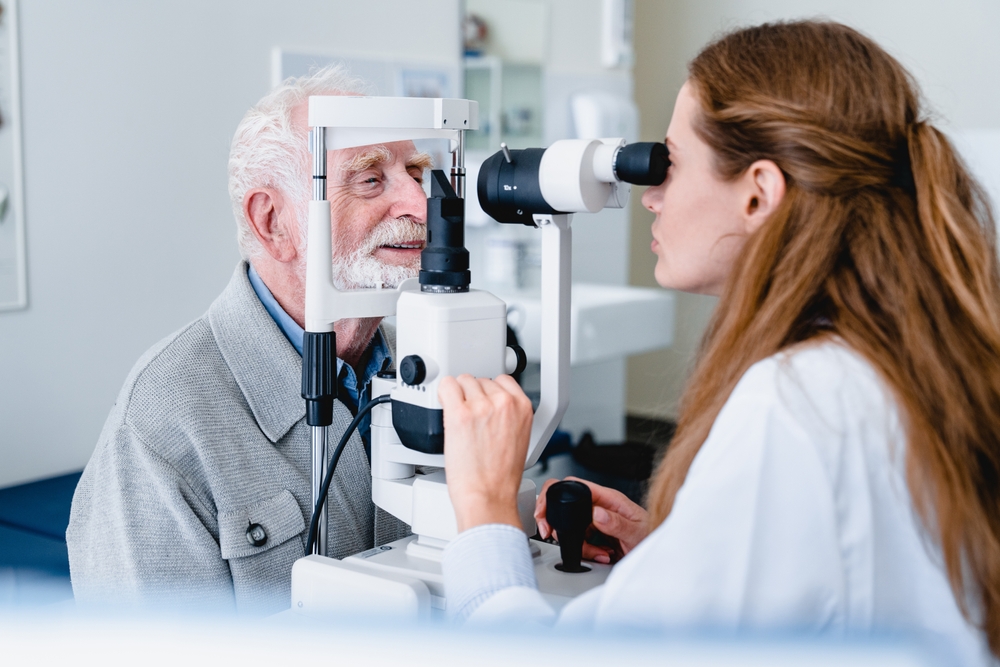
Cataracts, a common eye condition, occur when the natural lens of the eye becomes cloudy, leading to blurred vision, light sensitivity, and even vision loss if left untreated. Cataracts can greatly impact daily activities, such as reading or driving, making early detection and treatment crucial.
What are Cataracts and How Do They Develop?
Cataracts are a clouding of the lens inside the eye, which can cause blurred or distorted vision, sensitivity to glare, and difficulty seeing at night. They typically develop as a result of aging, but can also be caused by factors such as eye injuries, certain medical conditions, and exposure to ultraviolet (UV) radiation. As we grow older, the proteins in the lens of the eye can break down and clump together, forming the cloudy formations we know as cataracts.
The Importance of Preventing the Progression of Cataracts
Taking proactive steps to prevent cataracts can significantly reduce the risk of developing them. By prioritizing eye care and making these small lifestyle adjustments, individuals can protect their vision and reduce the need for surgery later in life.
Tip 1: Maintain a Healthy Lifestyle
Adopting a healthy lifestyle can play a significant role in preventing the progression of cataracts. Maintaining a healthy weight, engaging in regular physical activity, and getting adequate sleep can all contribute to overall eye health and reduce the risk of developing cataracts. Exercise can improve blood circulation, which helps nourish the eyes and support the lens. Additionally, maintaining a healthy weight can lower the risk of conditions like diabetes, which are known to increase the likelihood of cataract development.
Tip 2: Protect Your Eyes from Harmful UV Rays
Exposure to ultraviolet (UV) radiation can contribute to the formation and progression of cataracts. Protecting your eyes from harmful UV rays is crucial. When spending time outdoors, be sure to wear sunglasses or a wide-brimmed hat to shield your eyes from direct sunlight. Look for sunglasses that block 100% of UVA and UVB rays to ensure maximum protection.
Tip 3: Eat a Balanced Diet Rich in Antioxidants
A diet rich in antioxidants can help protect the eyes and prevent the progression of cataracts. Foods such as leafy greens, citrus fruits, berries, and fatty fish like salmon are excellent sources of antioxidants that can support eye health. Antioxidants help neutralize the free radicals that can contribute to the development and progression of cataracts. Incorporating these nutrient-dense foods into your daily meals can be a powerful way to safeguard your vision.
Tip 4: Quit Smoking and Limit Alcohol Consumption
Smoking and excessive alcohol consumption have been linked to an increased risk of developing cataracts. Smoking can damage the lens of the eye and contribute to the formation of cataracts, while heavy alcohol consumption can also increase the risk. If you smoke, consider quitting, and if you consume alcohol, do so in moderation to minimize the potential impact on your eye health.
Tip 5: Manage Chronic Health Conditions
Certain chronic health conditions, such as diabetes, hypertension, and obesity, can increase the risk of developing cataracts. Effectively managing these conditions through a combination of medication, lifestyle changes, and regular medical checkups can help prevent the progression of cataracts. Work closely with your healthcare provider to develop a comprehensive plan to manage your overall health and reduce the risk of eye-related complications.
The Importance of Regular Eye Exams for Early Detection of Cataracts
Regular eye examinations are crucial for the early detection and management of cataracts. During these exams, your eye doctor can assess the health of your eyes, identify any signs of cataract development, and monitor their progression over time. Early detection allows for timely intervention and the implementation of preventive measures, which can significantly slow down the progression of cataracts and preserve your vision.
Taking Steps to Protect Your Vision
By following these five tips, you can take proactive steps to prevent the progression of cataracts and safeguard your vision. Regular eye exams are essential for the early detection and management of this common eye condition. By taking control of your eye health, you can enjoy clearer vision and a higher quality of life for years to come.
Schedule your comprehensive eye exam with Eye To Eye Optometry to assess your risk of cataracts and take the necessary steps to prevent their progression. Visit our office in Antioch, California, or call (925) 757-7676 to book an appointment today.









